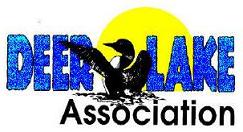

Deer Lake Association
A member of the Minnesota Lakes Association
| Spotlight |
|---|
|
|
Septic System Best Practices
DLA's Septic Initiative encourages Deer Lake property owners to learn more about how our septic systems may impact Deer Lake water quality.
For best Deer Lake water quality results:
- Pumping. Accumulating solids must be pumped from your septic tank regularly (usually every three years or as recommended by your septic pumping service). Examples of local septic pumping services that you can call you pump your tank include Bunes or Scooter’s . If you don’t know how long it has been since your tank was pumped, it’s likely time to pump your tank.
- Filter Cleaning. Most septic systems have a filter that must be cleaned regularly (usually annually). If you don’ know whether your system includes a filter or how to access your filter for cleaning, when your septic pumping service comes to pump your tank, ask them whether your system includes a filter and have them show you how to access it.
- Septic Compliance Inspection. The soil underneath the drain-field of your septic system acts like a filter, filtering your effluent before it runs into the water table and lake. Over a long period of time, 20-30 or more years, that soil-filter can become saturated. When your soil filter becomes saturated, pathogens, phosphorus, and other nutrients can run mostly unfiltered from your septic system into the water table and the lake. There are generally no outward signs of that failure. Phosphorus and other nutrients drive the growth of green algae and undesirable weeds. Septic systems 20+ years of age are at risk, and those installed 1996 or earlier are particularly at risk.
To help conserve Deer Lake water quality, once your system is 20 years old DLA recommends property owners order a septic compliance inspection every 5-10 years. Systems installed 1996 or earlier are particularly at risk. If your system was installed 1996 or earlier and has not undergone a septic compliance inspection in the past 5-10 years, DLA recommends property owners order a voluntary septic compliance inspection now. On average, 50+% of Deer Lake septic systems installed prior to 1996 would fail inspection, are contributing to Deer Lake water quality decline, and need replacement.
What is a septic compliance inspection? A septic compliance inspection is performed by a licensed private inspector. It includes a visual test inside your tank plus a soil test performed near your tank and under your drain-field. It’s the same inspection as the one required by law when property is sold or a property owner applies for a building permit that adds a bedroom. Systems that fail inspection must generally be replaced within two years of inspection.
DLA can recommend local licensed septic inspectors and septic replacement contractors. To learn more, contact beautifuldeerlake@gmail.com
Deer Lake is nearing a water quality tipping point.
Your septic inspection could make the difference.